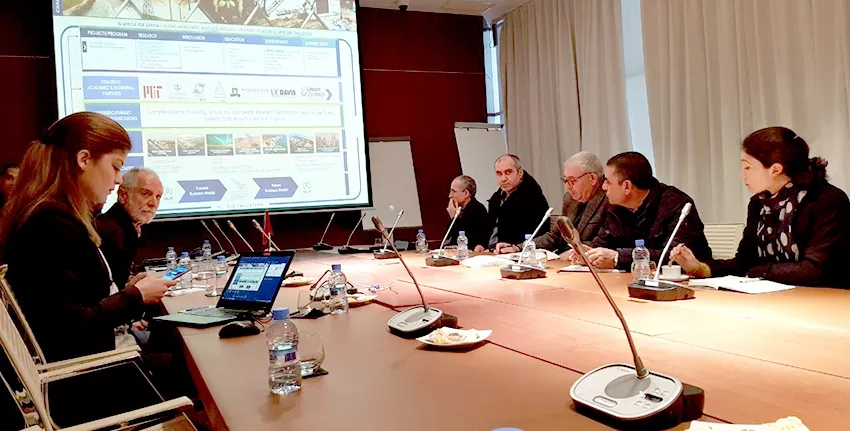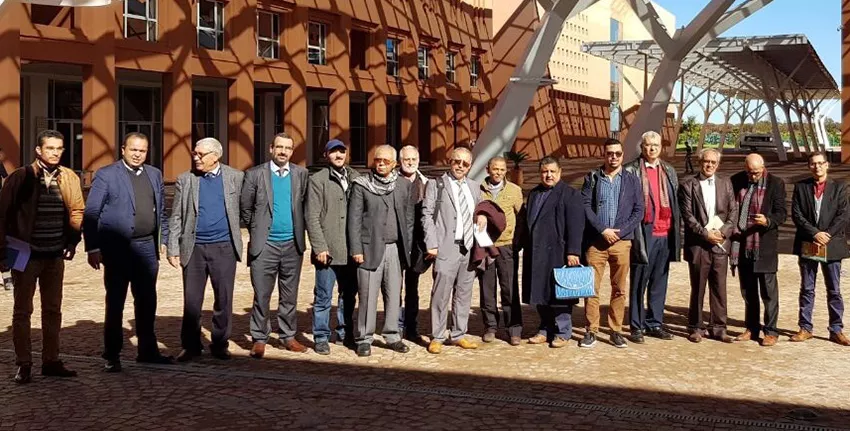ICBA launches new project to boost quinoa production in Morocco
12 January 2018
As part of its global quinoa program, the International Center for Biosaline Agriculture (ICBA) has recently launched a new project to mainstream the crop among poor rural farming communities in Morocco.
Water resources are getting scarcer in Morocco – a situation aggravated by the effects of climate change, erratic rainfall and a succession of drought years. This puts agriculture, a main source of livelihood for smallholder farmers, at a growing risk. What is more, sustainability of irrigated agriculture in the country is also threatened by the salinization of land and water resources. Approximately 30% of the soils in irrigated areas are salt-affected. As a result, average yield losses are reckoned to be as high as 50%, with some estimates putting economic losses above 0.2bn USD per year.
In this context, introduction of crops such as quinoa, which have high value and high tolerance to abiotic stresses, would help to address simultaneously two interrelated challenges: abiotic stresses that undermine crop production and poverty that impacts the rural poor.
This idea is behind the project which will reach 1,075 farming families, or around 5,000 people in total, in the country’s rural areas.
ICBA and other project partners kicked off the project during a meeting attended by senior officials, including the Ethiopian minister of state for agriculture, at the Mohammed VI Polytechnic University, Morocco, on 12 January 2018.
Funded by the International Development Research Centre (IDRC), the project will target Rhamna Province where a large number of the farmers live under the poverty threshold and a quinoa value chain already exists but is constrained due to various factors.
Titled “Scaling up quinoa value chain to improve food and nutritional security in poor rural communities of Morocco”, the project fits within the framework of Pillar 2 of the Morocco Green Plan, which focuses on the modernization of agriculture with social impact and investment in social initiatives to combat rural poverty.
The project will run from 2018 to 2020 and will be implemented in collaboration with the Mohamed VI Polytechnic University and several other partners. Among the project partners are also the Direction régionale d’Agriculture (Regional Department of Agriculture - DRA); Direction Provinciale d’Agriculture (Provincial Department of Agriculture - DPA); Office National de Sécurité Sanitaire des produits Alimentaire (National Office of Sanitary Security of Food Products - ONSSA); and Office Régional de Mise en Valeur Agricole (Regional Office for Agricultural development - ORMVA).
Under the project, ICBA will analyze the existing quinoa value chain, develop a pro-poor business model and scale it up. Moreover, it will also introduce and disseminate quinoa cultivars which are highly tolerant of abiotic stresses like high salinity, drought and extreme temperatures, and have high productivity and yield stability. It will also promote appropriate crop production and management practices among smallholder quinoa growers.
Originating from the mountainous ranges of South America, the 7,000-year-old quinoa is a revenue-generating crop that has huge potential to improve the livelihoods of poor smallholder farmers in areas with high salinity, water scarcity and drought.
Moreover, quinoa is one of the most nutritious food crops currently known and is regarded as a superfood because it contains all eight essential amino acids needed for human health. It is also gluten-free and has twice as much protein as maize, barley and wheat.
Since 2007 ICBA has been running a global program on quinoa to evaluate its germplasm and select lines that are best suited to different environmental conditions and geographic locations. The center’s genebank, which conserves over 14,000 germplasm accessions of plant species from around the world, includes over 1,000 accessions of quinoa. To date the center has identified four lines of quinoa for scaling out in the Middle East, North Africa, South Asia and Central Asia.












